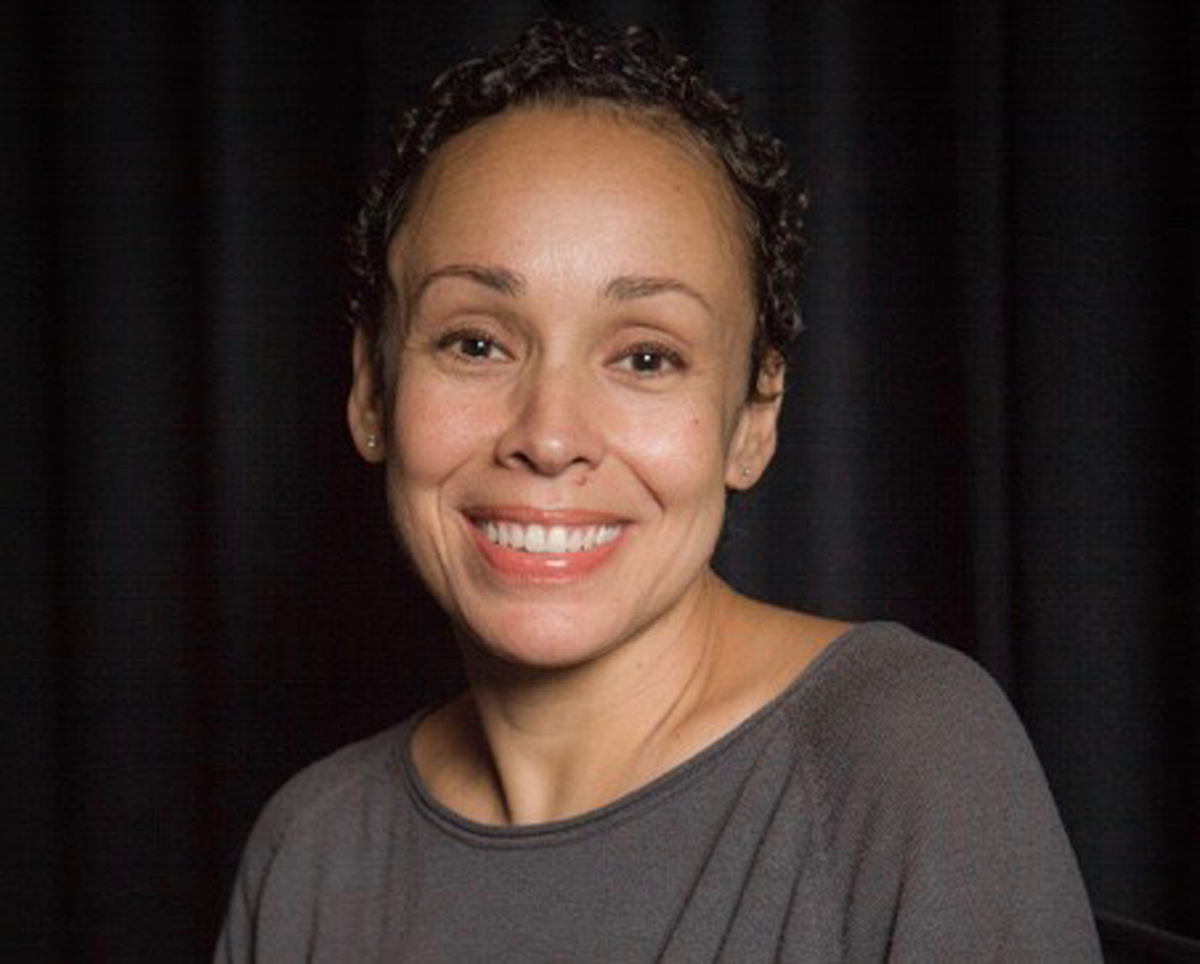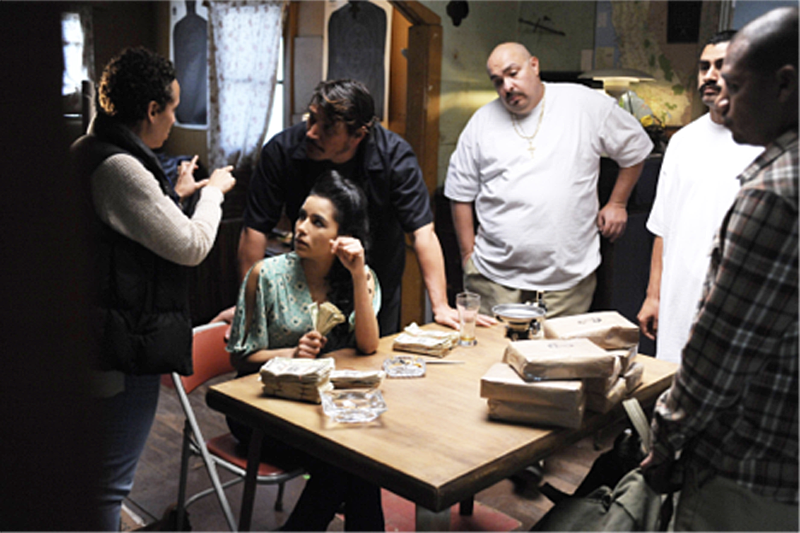
- Industry
Zetna Fuentes: In ‘Snowfall’, Directing a Color Blind World
“I am so excited to see women and women of color as directors, making strides, and getting to work,” says Zetna Fuentes, director of the 7th episode of Snowfall, the FX series that chronicles the proliferation of cocaine in LA’s inner city and the connection to the CIA in its quest to fund a proxy war in Central America. The series involves a diverse cast, and is in two languages, with subtitled Spanish dialogues. Fuentes, with her Puerto Rican mother and Chilean dad, was easily able to straddle the languages.
Casting against type is something Fuentes advocates. “As an episodic director you don’t have many choices in terms of hiring crew, they are already established. You can try and make an impact on casting. I will often ask to make the role open if I can, even if it is a background artist. If there are two police officers that are going to court escorting the person into the room, I will say, ‘Can one of those people be a woman, or a person of color, or a woman of color.’ I try and do it especially when it is a role that we are used to seeing men in. I was on a show and the role was for Marine One. I said, ‘You know we have women who are marines, how about a woman for the role of Marine One?’ They had never shown that on the show before and it was a great opportunity. Everyone was very excited. Everyone was, ‘Yeah, let’s do it.’ Where you can, you have to voice that and make it a priority.”
A beneficiary of Women’s Initiatives through the Disney/ABC Directing Program, Zetna heralds the need to target those who are unconsciously excluded from opportunity. ‘I was working in daytime and loved that world. I was learning a lot and valued the people that were teaching me. It’s such a craft, but when I heard of this program concentrating on episodic (TV) – there weren’t as many as there are now – I applied. It opened doors to make those crucial relationships. I’d been based in New York and also done a lot of theater so I didn’t have the contacts in episodic.” Fast forward to now, and the woman who fell in love with directing by viewing classics with her dad is a regular in the genre and is looking toward segueing into movies.’
Having observed many women and men directors, she’s in a perfect position to note the differences in how gender approaches the task. ‘There’s a little frustration at the implication that directing is effected by X chromosomes. The most important thing I observed was what great directors women were. Period.” She pauses for effect. “There was nothing about their gender that made a difference. They were just wonderful story tellers; clear and decisive.” Which is why she also questions the ‘quota’ system many studios seem to approach when assigning directors to series. “I’ve heard the comment on a ten show series that they already have their ‘one woman director’. My comment to that is that if there are 10 slots and you already have a woman taking up one slot, what about the other nine slots? Why do women compete for only one slot?”
When she is directing, her joy is interacting with actors. “That’s part of my job and I focus on it a lot. I like a calm, well-run set. I like to create an environment where people can do their best work. I prepare. I’m not a loud person but it’s important to be clear and make decisions so others can go and do their job.”

Fuentes loves that “television currently speaks to different experiences that have something real to say that is not just the typical white male dominated storytelling that we have seen. I am proud of the work I’ve done on Snowfall and Jane the Virgin. These are shows that are telling a different kind of story.” However, that doesn’t mean that life has caught up with a more equal representation behind the camera- “It’s happened that after lunch, when we pile into the van to return to set, that someone will say to me, ‘This van isn’t for background.’ and I have to explain, ‘I’m the director, not background.’ Same thing happens when I drive onto the lot. I will be asked, ‘Should you be parking here?’ ‘Yes, I should be parking here. I am the shooting director. This is my parking spot.’”
She shares the stories without umbrage. It’s merely a fact of unconscious branding that the other half experience daily. “When in front of the camera and behind it, you see people like you, doing great work – if it’s the cast, and in the story, and you look behind the camera and the operator is a woman or a person of color, it feels like a homecoming. It feels like how it should be. It feels like a community and that you are not alone. It feels great.”